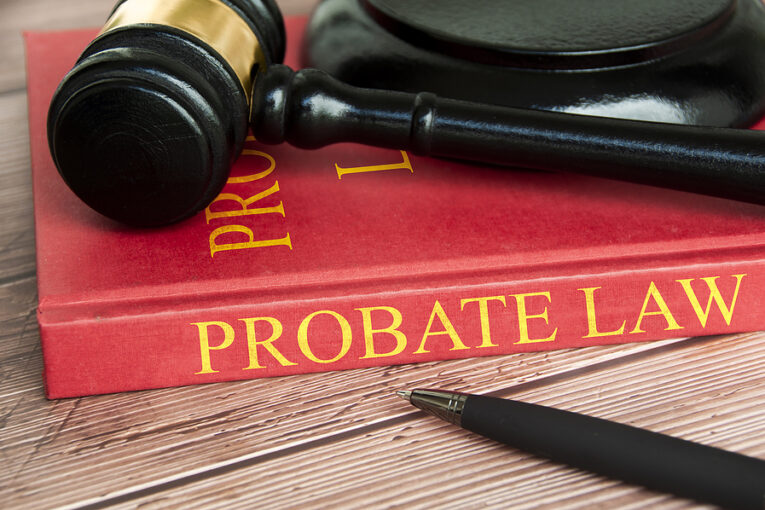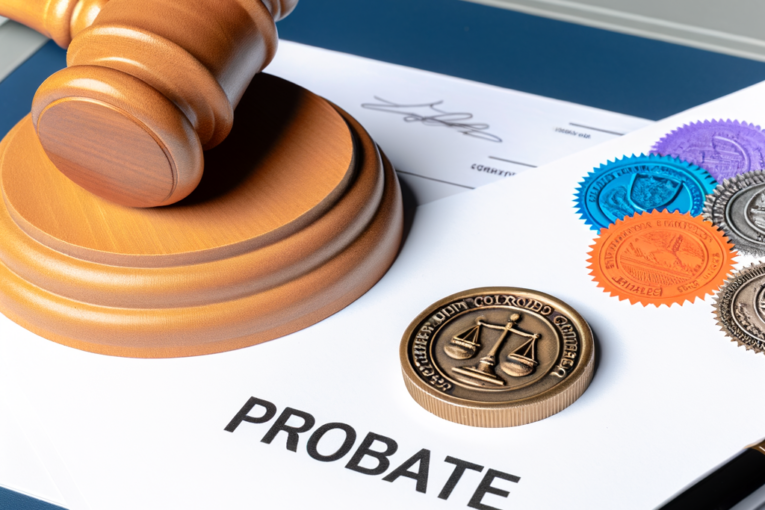Supervised Probate is a specialized legal process that involves close court oversight and monitoring during estate administration and asset distribution. Unlike unsupervised probate, where the personal representative and beneficiaries handle the process independently, supervised probate requires stringent procedures and regular court intervention.
This type of probate is necessary in certain complex or contentious situations which demand greater accountability, legal compliance, and protection of interests. The court’s role is to ensure adherence to probate laws, resolve any disputes, prevent misconduct, and safeguard beneficiaries.
| Supervised Probate Necessary For | Purpose of Court Oversight |
| – Complex estates disputed wills family disputes and Personal representative incapacity | – Ensure compliance – Resolve disputes protect interests and Prevent misconduct |
The types of situations that typically require supervised probate include:
Understanding Supervised Probate
Supervised probate is a specialized legal process where the probate court takes an active role in overseeing the administration of the estate.
Definition and Characteristics
- Involves stringent court oversight and monitoring at every stage.
- Requires regular status hearings and detailed reporting.
- Ensures adherence to probate laws and regulations.
- Compares to unsupervised probate, where court involvement is minimal.
- It is necessary to resolve complexities, disputes, or misconduct in estate administration.
The key purpose is to guarantee compliance, enforce accountability, and protect beneficiaries’ rights in problematic situations through court intervention.
“Supervised probate aims to prevent exploitation and ensure fair distribution of assets when especial vigilance is needed.”
Complex Estates
Complex estates with substantial assets or complicated holdings often require supervised probate. Managing intricate asset portfolios demands particular oversight, which the probate court is positioned to provide.
Necessity of Court Supervision
- Diverse asset types (real estate, businesses, and investments) need coordinated handling.
- appraisal and distribution of high-value tangible assets necessitate accountability.
- Meticulous organization is vital when dealing with numerous beneficiaries.
- Court supervision enforces governance and reporting structures for smooth administration.
Without stringent processes, complex estates risk mismanagement, disputes, valuation inaccuracies, and improper distribution. Court oversight mitigates these risks.
“The court’s role in supervised probate is oversight, ensuring complex estates are professionally managed and distributed per the deceased’s wishes and the law.”
Disputed Wills
Will contests are another common basis for supervised probate. Instead of delaying proceedings until disputes are resolved, the probate court proactively monitors administration and facilitates settlement.
Handling Will Contests Legally
- courts follow established procedures for hearing contestation petitions.
- Mediation and negotiation may be mandated as alternatives to litigation.
- Once disputes are settled, the court bases its distribution orders on the legal outcomes.
- Ongoing supervision prevents unfair actions by disputing parties during probate.
Court intervention is key as it wields the authority to make definitive rulings when agreement cannot be reached amicably. This prevents endless disputes, stalling estate closure.
“Rather than allow will challenges to create probate gridlock, courts preserve oversight and shepherd matters to resolution under supervised probate.”
Family Conflicts
Probate proceedings tend to inflame familial conflicts, which can profoundly disrupt administration unless controlled. The court has a vital role in settling family disputes through supervised probate.
Resolving Family Disputes
- Mediation can resolve conflicts, especially those involving sibling disharmony or marital asset division.
- When disputes involve favored beneficiaries or second marriages, court intervention ensures impartiality.
- Judges mandate cooperation, bar unreasonable demands, and divide assets fairly per law.
- Supervision prevents endless bickering from delaying closure and increasing legal costs.
By wielding deterrent authority, the court inhibits much of the dysfunction that often emerges between warring beneficiaries during probate.
“Skilled probate judges manage family drama and enforce resolution strategies for the good of all parties under court oversight.”
Incapacitated Personal Representatives
When an estate’s designated personal representative cannot serve due to ineligibility, illness, or other incapacity, judges appoint replacements under supervised probate. This oversight prevents administrative gaps.
Appointing New Personal Representatives
- Court hearings are held to confirm incapacity and designate successor representatives.
- New appointees must submit qualification documents and post-performance bonds.
- Supervision ensures no lags occur when transitioning administrative responsibilities.
- Ongoing court management protects against instability until probate closes.
Through stringent processes governed by judges, supervised probate facilitates an orderly shift of personal representative duties to qualified successors.
“Courts use their oversight authority to prevent any disruptions when replacing incapacitated personal representatives.”
Compliance with Probate Laws
The courts mandate supervised probate to guarantee strict adherence to probate laws and regulations. Judicial officers proactively verify compliance through required filings and status hearings. This oversight leaves no room for deviation.
Enforcing Compliance
- Judges mandate precise filing of inventories, appraisals, financial statements, and court notices.
- Status hearings regularly assess representatives’ compliance performance.
- courtsmandate that swiftly detect and correct any deficiencies in procedural compliance.
- Penalties for violations compel representatives to follow judicial instructions punctiliously.
Supervised probate thus ensures estate administration transcends in absolute accordance with the law through stringent court monitoring.
“Probate judges use oversight tools like status hearings, required filings, and penalties for violations to enforce strict legal compliance.”
Protecting Beneficiaries
Courts also leverage supervised probate to guarantee beneficiaries receive fair treatment, especially minors and other vulnerable parties unable to defend their interests. Protective mechanisms include:
Safeguarding Beneficiaries
- Court oversight of asset sales and distributions to prevent denial of rightful inheritance.
- Trust requirements mandate that inheritance be collectable only at adulthood.
- Guardian appointments to represent minor beneficiaries in court proceedings.
- Strict penalties are imposed against representatives attempting to exploit beneficiaries.
Through such mechanisms applied in supervised proceedings, judges proactively shield beneficiaries from harm.
“Protecting incapacitated beneficiaries from exploitation is a prime purpose of court oversight under supervised probate.”
Preventing Fraud and Misconduct
Finally, deterring potential fraud and punishing mismanagement are fundamental applications of authority unique to supervised probate. Courts utilize tools like:
Court Measures Against Misconduct
- Review of inventories, appraisals, and financial statements to catch irregularities.
- Court-ordered estate audits by appointed referees.
- Financial penalties, removal of representatives, or referrals for criminal prosecution for serious violations detected under supervision.
- Legal action to recover damages from representatives for fiduciary breaches or gross negligence.
Under court monitoring, attempting probate fraud or other misconduct carries dire consequences, thus disincentivizing misdeeds.
“The extensive oversight courts apply in supervised probate leaves minimal openings for representatives to engage in financial improprieties.”
The supervised probate’s intense scrutiny makes it essential for intricate estates, contentious relations, incapacitated fiduciaries, or parties with compliance uncertainties. The various court interventions detailed safeguard proper administration.
Given supervised probate’s complexities, consult an experienced probate litigation attorney if your situation likely necessitates high court involvement. Skilled legal guidance helps navigate supervision mechanisms smoothly.
FAQs
Supervised probate is a legal process where the court closely oversees the administration of an estate. It is required for complex estates, disputed wills, family conflicts, and when the personal representative is incapacitated.
Unlike unsupervised probate, which involves minimal court involvement, supervised probate requires regular court hearings, detailed reporting, and stringent compliance with probate laws to ensure proper estate administration.
Court oversight in complex estates ensures meticulous management of diverse assets, accountability in asset valuation and distribution, and protection against mismanagement, thereby safeguarding the interests of all beneficiaries.
In supervised probate, the court actively monitors the administration process, facilitates mediation or negotiation, and makes definitive rulings on contested issues, preventing prolonged disputes and ensuring fair asset distribution.
Supervised probate protects beneficiaries, especially minors or vulnerable parties, by overseeing asset sales and distributions, appointing guardians if necessary, and imposing strict penalties for misconduct by the estate’s representatives.





